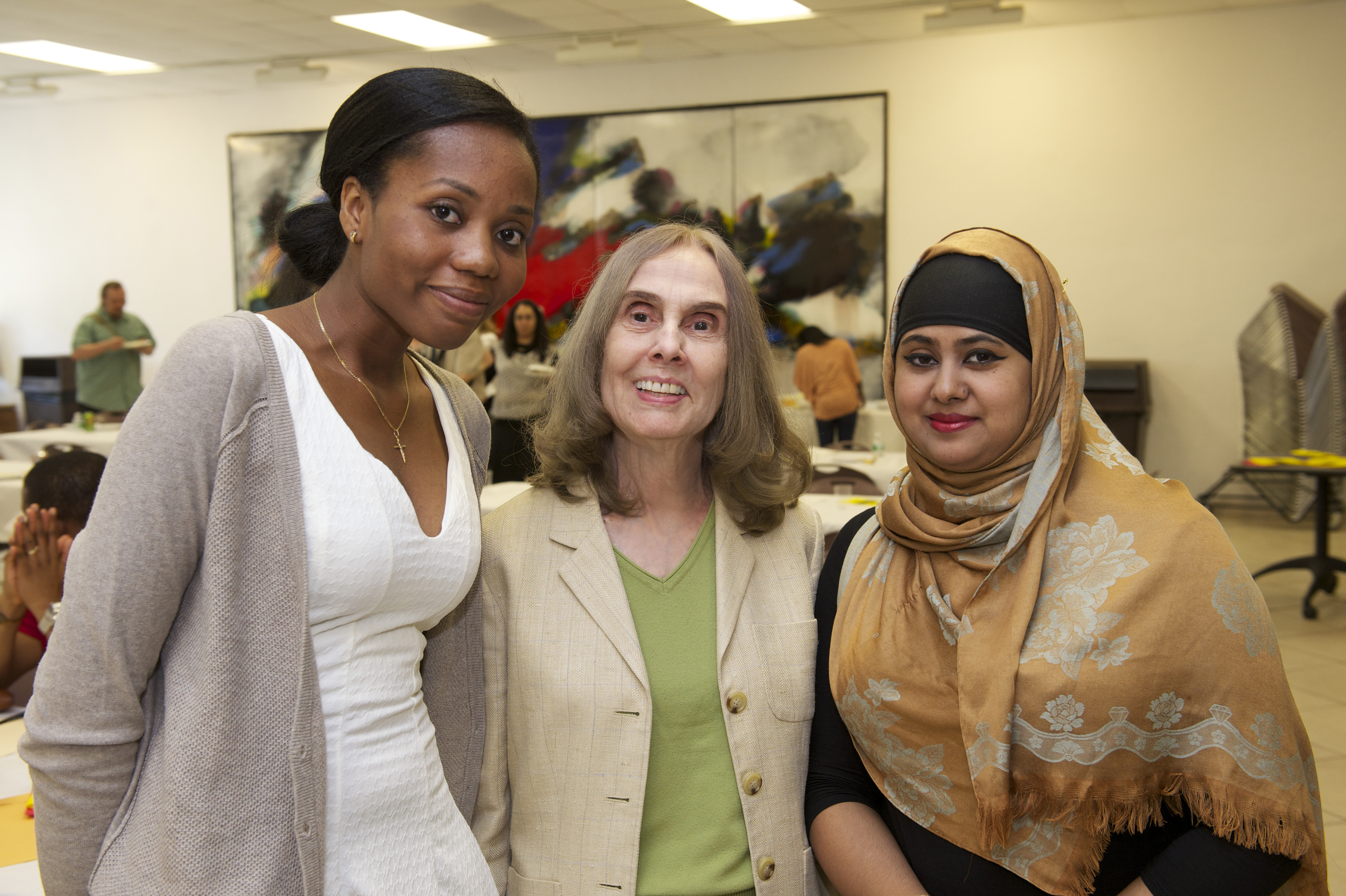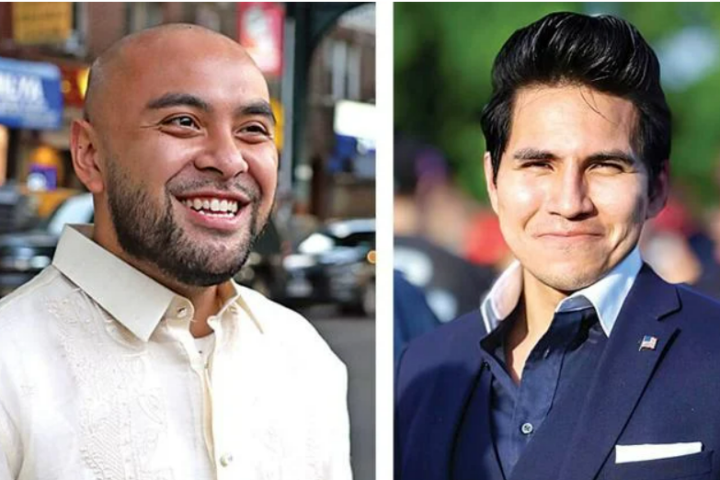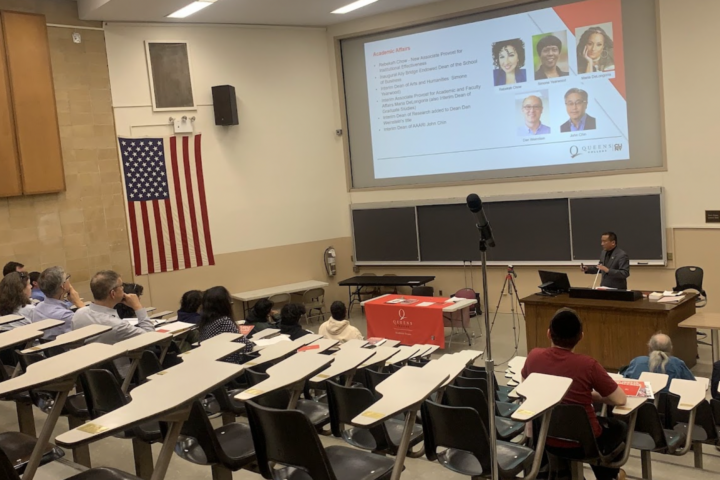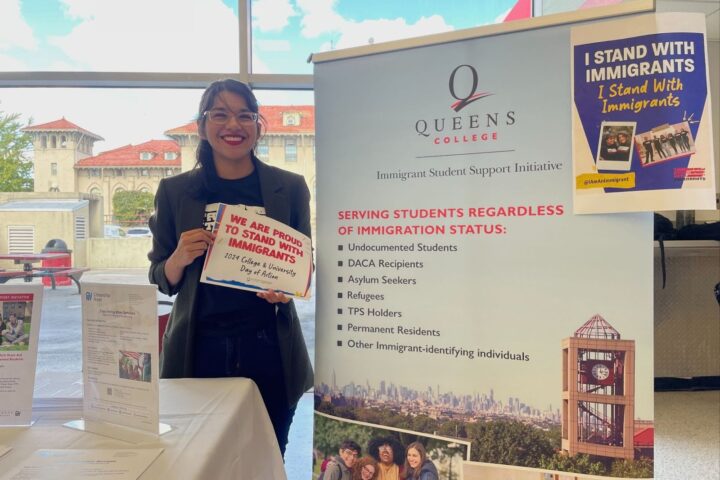While Professor Joyce Warren may be known around Queens College as both an English professor and director of the Women and Gender Studies program, back home in Western Massachusetts, she was the little girl who read everything, climbed the tallest of trees, and would not tolerate prejudice among any of the kids she played with.
Growing up in a small Cape Cod house in a working-class neighborhood and a big swing that her father built, Joyce Warren was anything but your average child.
While she enjoyed her days playing outside with all the children of her neighborhood, she was also a voracious reader. Going to the local library once a week with her mother, Warren quickly outgrew the children’s room and got into the adult book section at a young age.
“My mother never censored anything I read and I read a lot of adult books that were probably beyond my full understanding and were definitely not for children. But my mother figured that it wouldn’t hurt me. She even let me use her library card for them when I was too young to get an adult card.”
Professor Warren came from a community that was very diverse ethnically, but not racially. Her Canadian parents would not tolerate any prejudice in their home. Thus, it’s no surprise that she would tell kids who voiced prejudice to stop.
One of the events that helped cultivate who Professor Warren is today was at her local Episcopal Church.
“When I was a very young child, I asked my mother one day, ‘Why wasn’t Jesus a girl?’ My mother said she didn’t know, but told me we could ask the minister next Sunday. I voiced my question and still remember his reply. He said that in those days, women didn’t have any power. He said Jesus had enough trouble getting people to listen to him, and he was a man. If Jesus had been a woman, it would have been even harder for her as a woman to have people listen to her.”
Professor Warren says the reason this event is so memorable for her is because her mother and the minister treated her question seriously.
“They didn’t try to silence me by telling me I was being ‘sacrilegious’ or ‘bad’ to ask such a question. It encouraged me to question and it also gave me the confidence to regard myself and every other person, even a small child, as someone who should not be discounted.”
Getting to college was a bit of a challenge for Warren, since her father didn’t want her to go.
“He didn’t believe in college for girls. He said it was a waste of money because a girl would just get married. No one in his family had been to college. He, himself, was taken out of school when he was 14 and put to work in the coal mines to help support the family.”
Professor Warren adds that her mother’s persistence helped her get a higher education,
“My mother had been an elementary school teacher and did believe that girls should go to college. When my guidance counselor at school told me that I should go to college, my mother and father apparently argued about this question.”
When her father finally agreed for her to go, he would only pay what it would cost at the local college. Therefore, when Professor Warren got accepted at Brown University with a scholarship, she had to work to cover the cost.
“I gained a lot of experience and knowledge of different kinds of people and in the ways of the world in the many different jobs I had, which included working as a billing clerk for a liquor wholesaler, at a fast-food place, a movie theater, a department store, a dollar store, a bank, an office, and a jewelry store.”
At Brown University, Professor Warren pursued a degree in English, going on to pursue a PhD at Columbia University.
When I asked about any obstacles she faced, while I expected Professor Warren to tell me about graduate school, she surprised me with something else.
“There were never any obstacles that made me want to give up, but there were many obstacles in my life. I have told you about the obstacle to my going to college. Another obstacle was not to my education, but to my becoming a mother. I had a total of eight miscarriages. I cannot tell you how frustrating and debilitating the experience was.”
Professor Warren continued, explaining how she progressed through it all.
“I just continued doing what I was doing. Sometimes a reality is so devastating that if we think of it all the time we can lose our equilibrium or the will to carry on. Eventually, I had two children and then it was discovered that I had thyroid cancer and I had my thyroid removed. After that, the other two children just came. Clearly, the thyroid was the problem but at that time, doctors did not know what they know now about the connection between the thyroid and reproduction.”
Professor Warren credits perseverance for her motivation to not only continue her education, but to continue her quest to become a mother. When asked about her greatest achievements, she said that one can achieve in many areas and it’s impossible to rank them.
“One kind of achievement is that I have helped many students over the years and have built up a successful Women and Gender Studies program at Queens College. Another could be that I have four delightful children and continue to live happily with the man I fell in love with and married when I was nineteen. And finally, I could say my achievement is that I have gained international recognition through my scholarship: publishing seven books (eight including my children’s book), numerous articles, and given papers in the U.S. and abroad. I don’t really think of all of these as ‘achievements’; they are just what I do and together they go to make up who I am.”
She added that it was difficult to get to where she is today, “But even more than that, it was unbelievably interesting.”














